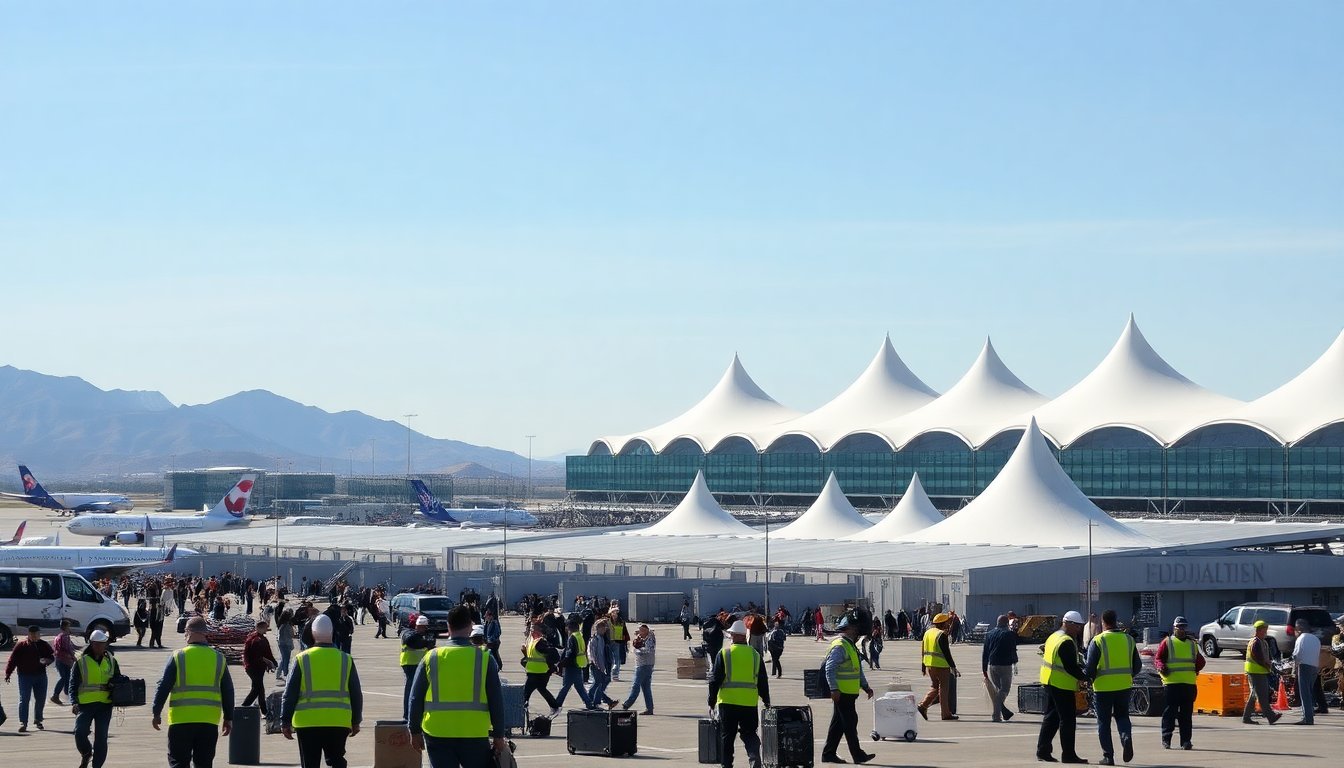Table of Contents
In a proactive move during a historic government shutdown, the city of Denver has proposed measures to ensure the continued operation of its airport, which ranks as the third-busiest in the nation. Mayor Mike Johnston expressed concern over the ongoing federal shutdown, which has led to a mandated 10% reduction in flights across major U.S. airports, including Denver International Airport (DIA).
The mayor emphasized the airport’s vital role as an economic engine for the Rocky Mountain region, stating, “The Denver Airport is perhaps the largest economic driver in the Rocky Mountain West.” This underscores the airport’s importance not only to travelers but also to the local economy, as many businesses rely on its functionality.
Funding proposal for air traffic controllers
To combat the looming flight reductions, Denver has formally requested permission from the Federal Aviation Administration (FAA) to utilize city funds to pay its air traffic controllers during the shutdown. This request was submitted on Wednesday, and as of Thursday, the city had yet to receive a response from the FAA.
Johnston criticized what he termed “the President’s shutdown,” arguing that it poses a significant threat to Denver’s economy. He stated, “This would be a crushing blow to the city’s economy that affects not just those that are in greatest need, but everybody who relies on the airport for work, travel, or leisure.”
Anticipated impact of flight cuts
As the government shutdown persists, Transportation Secretary Sean Duffy announced that starting Friday, flights will be cut by 10% in 40 high-traffic cities across the United States, including Denver. This drastic measure is a direct response to the shortage of air traffic controllers, many of whom have been absent due to lack of pay during the shutdown that began on October 1.
With the possibility of as many as 4,000 flights being grounded nationwide, the situation has escalated to the point where Duffy warned of potential “mass chaos” in the skies. The air traffic controller shortage is exacerbated by the fact that many are working unpaid and have been forced to call in sick, contributing to operational difficulties across the country.
Economic implications for Denver
Denver International Airport served over 80 million passengers, highlighting its significance not only as a transportation hub but also as a cornerstone of the local economy. With the tourism sector employing approximately 190,000 individuals, the ramifications of a reduced flight schedule would be felt widely throughout the community.
Denver’s proposal includes a plan to seek reimbursement from the federal government once the shutdown concludes. However, history suggests that cities and states have often been left to cover their expenses following previous shutdowns, as seen in the cases of Colorado and New York during the 2013 shutdown.
Supporting airport staff and community
In addition to seeking funding for air traffic controllers, Denver has taken steps to support airport employees affected by the shutdown. The airport has opened a food pantry to assist FAA, TSA, and Customs and Border Patrol personnel with essential groceries and necessities, inviting public contributions to help those in need.
As the travel industry continues to advocate for an end to the government shutdown, major airlines and aviation unions have echoed calls to restore normal operations, emphasizing the negative impact on both the aviation sector and public confidence in air travel.
The mayor emphasized the airport’s vital role as an economic engine for the Rocky Mountain region, stating, “The Denver Airport is perhaps the largest economic driver in the Rocky Mountain West.” This underscores the airport’s importance not only to travelers but also to the local economy, as many businesses rely on its functionality.0


